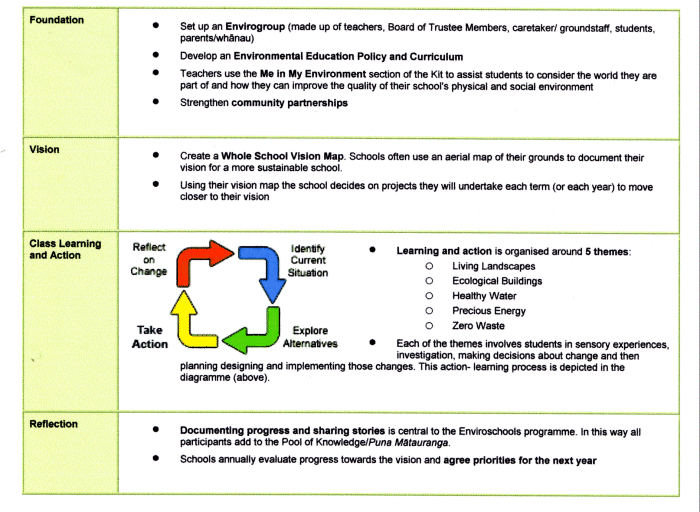| David
Parker Presentation - Enviroschools ) |
|||||
|
Return to presentation to NZ Minister of Energy & Climate Issues
|
“When a symbol use works to deny change it will materially alter the potential of the universe (energy) in a way that results in a reduction in the capacity of the symbol user to mirror reality. When a symbol use works for the acceptance of change it will increase the capacity of the symbol user to mirror reality.” Denials of change: We are thermal beings and use combustion to survive in our current form i.e. we constantly combine food with air. The existence of the atmosphere is also vital in that it enables the transformations and thermal balances required for life, as we know it on Earth’s surface. Enviroschools denies these essential changes and excludes air from the energy equation of combustion. Enviroschools defines power and energy as Bulk-generated electricity, thereby confusing them with the form(s) they can take. Enviroschools teaches that humans can save/conserve energy. In so doing it denies the Conservation Principle and that humans are subject to change as mortal forms. General comment: Enviroschools is the dominant environmental education programme in New Zealand schools this century. The most recent Government Budget allocated $NZ4.3 million to its implementation* and it receives additional funding from a wide range of Government sources at the local and national level. Hence it plays a powerful role in framing our response to environmental issues, especially climate issues. * This was news to the Minister. As the page shows, the programme is based on five themes. The atmosphere is completely omitted from these themes and this is reflected throughout the resource. The architects and principle proponents of the resource were well aware of the issue of our impact of our carbon uses on climate balances when they created and promoted Enviroschools in 2000. They were also aware of the existence of environmental education programmes that did communicate climate issues and chose to actively suppress such programme9s). It is probably not helpful to discuss the drivers of the behaviour forming Enviroschools here. Suffice to say the reality is, as Jonathon Porrit* pointed out in 2006, Enviroschools completely omits reference to the biggest issue of our time: our use of carbon. *NZAEE National Conference Auckland 2006 The NZ Green Party is promoting the programme heavily and is responsible for negotiating the Budget allocation. Proponents of Enviroschools attempt to defend the omission of climate issues from the resource by arguing that it links to Climate Change Office materials. These are profoundly flawed and are arguably Greenwash too. Enviroschools compounds the situation by defining power and energy as Bulk-generated electricity – one of New Zealand’s fastest growing sources of carbon emissions. Its materials work directly against the development of dwelling based generation of resources. It also works to obscure the fact that recent legislation by our NZ Government prevents citizens making intelligent uses of their local utility grid and electricity in general. In short, Enviroschools is a potent example of the obstacles the Minister faces in communicating climate issues. It is arguable that Enviroschools forms the most powerful Greenwash agent in New Zealand and is even greater than the propaganda of Contact Positive Energy. The resource has the authority of our Parliament, especially our Green Party) and its design works to obscure the unsustainable uses of carbon and electricity promoted by Government policy. It works to reduce awareness of the growing discrepancy between Parliaments 100% Clean Green Pure New Zealand and the reality of human-induced change.
Return to 2006 Presentation to NZ Minister of Energy & Climate Issues |
|
|||

